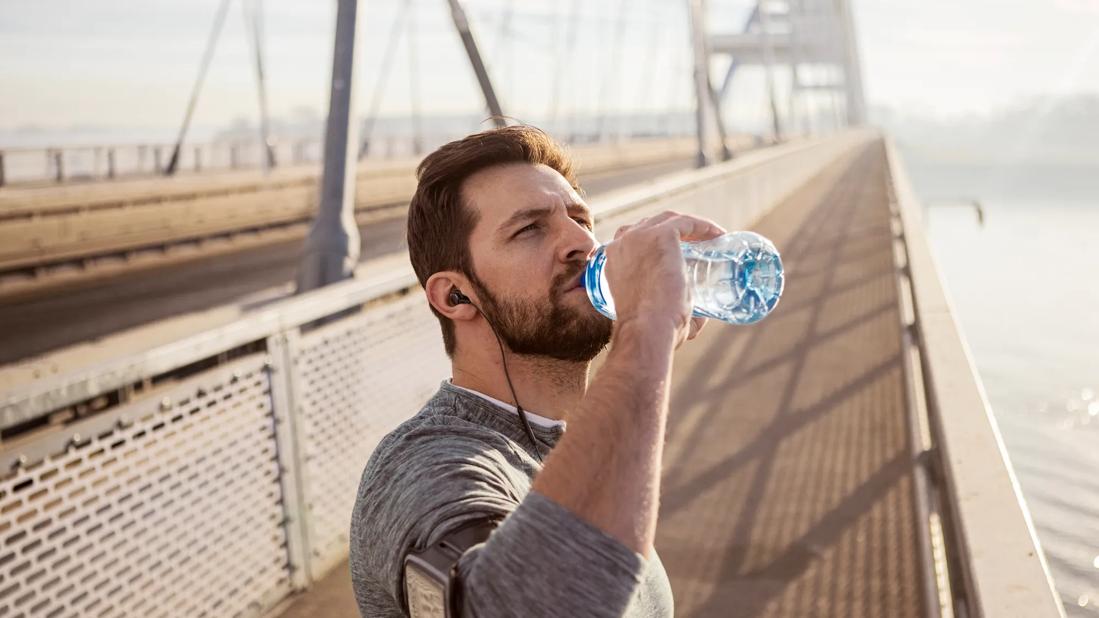Changes in eating, exercise and sleep habits often can help reduce symptoms

Image content: This image is available to view online.
View image online (https://assets.clevelandclinic.org/transform/607da8ee-fe5a-4ad0-9043-2fc5f07c339c/person-exercising-water-1292784137)
Person stopped on bridge during workout, wearing arm band and earbuds, to drink from water bottle
It’s estimated that up to 10% of the world’s population may be dealing with irritable bowel syndrome (IBS). That’s hundreds of millions of people ― and odds are, all of them have a one-of-a-kind case.
Advertisement
Cleveland Clinic is a non-profit academic medical center. Advertising on our site helps support our mission. We do not endorse non-Cleveland Clinic products or services. Policy
“No two irritable bowel syndrome patients are the same,” says gastroenterologist Christine Lee, MD. “They are uniquely different, like your fingerprint.”
But while every person’s version of IBS may be distinct, there are similarities in what typically triggers the uncomfortable abdominal condition. Making a few adjustments in day-to-day activities might be all it takes to help manage your IBS.
So, what can you try? Let’s find out from Dr. Lee.
Lifestyle changes can often help you manage your IBS. “Treatment options really should be individually tailored for each individual,” clarifies Dr. Lee. “What works for one person may not work for another.”
Efforts to manage IBS typically involve some or all of the following.
Exercise is “the best medicine available today” for IBS management, declares Dr. Lee.
For starters, moderate physical activity (such as a brisk walk) can help move poop through your system in a more orderly fashion. This improved regularity may reduce issues with both constipation and diarrhea.
Working out also can ease IBS pain and discomfort by:
Advertisement
No surprise here, but what you eat can play a major role in the happiness (or crankiness) of your gut. Putting certain foods on your plate may help keep IBS symptoms from complicating your day.
These dietary tips tend to help many with IBS:
As noted, different people have different triggers for IBS ― but these foods often trigger IBS flare-ups:
Keeping a food diary may help you identify if certain foods set off your IBS symptoms, notes Dr. Lee.
Your body operates on a sleep-wake cycle known as your circadian rhythm. This 24-hour internal clock affects the way your body functions. If your body gets off schedule, it can cause problems.
“If you don’t sleep well, your circadian rhythm can get off track ― and that can play havoc with IBS, as well as your immune system,” explains Dr. Lee.
Adults typically need seven to eight hours of ZZZs per night to feel rested, recharged and in rhythm. The bad news? It’s estimated that nearly 37% of adults don’t get enough shut-eye, according to the U.S. Centers for Disease Control and Prevention (CDC).
Your digestive system needs water for everything to … well, flow smoothly. Not drinking enough fluids during the day can leave you dehydrated and create digestive tract issues that trigger your IBS.
“If you have IBS, you want to keep hydrated throughout the day,” states Dr. Lee.
Drinking six to eight 8-ounce glasses of water is generally considered a healthy target. That’s just a starting point, though. Your needs may change depending on your physical activity level, weather, health conditions and other factors. (Learn more about how much water you need.)
Advertisement
Your brain and gut share a unique (and some might say, unusual) connection. Within your body, their relationship qualifies as “best friend” status. In fact, more information passes between your brain and gut than any other body system.
So, if you’re feeling mentally stressed, your digestive system knows it and may add to your issues.
“Lowering your stress level can ease IBS symptoms or prevent a flare-up,” says Dr. Lee.
Techniques such as deep breathing, guided imagery and mindfulness meditation can help you destress and relax. Activities like yoga or Tai Chi also might help you find a peaceful calm inside.
It’s always best to talk with your healthcare provider to try to identify what may trigger your IBS symptoms. Expect a lot of questions.
“Taking a full history is so important,” says Dr. Lee. “Things you don’t even attribute to your IBS may actually be a huge influencer. But with time and patience, you can start to identify strategies and tailor a plan that’s specific to you.”
Advertisement

Sign up for our Health Essentials emails for expert guidance on nutrition, fitness, sleep, skin care and more.
Learn more about our editorial process.
Advertisement
A low-FODMAP diet or gluten-free diet could help you manage your symptoms, but only with professional guidance
Triggers can range from the foods you eat and the medications you take to how often you exercise and how stressed you are
Pediatric IBS treatment involves making dietary adjustments, getting mental health support and — in some cases — taking prescription medication
Symptoms of IBS usually include abdominal pain, coupled with bloating and more
You don’t have to limit travel with proper planning
The caffeine and natural acids in coffee may trigger acid reflux, but there are ways to lessen the effects
Wait a few hours, then start with water or ice chips, graduating to clear liquids and then, soft, bland foods
Eating a healthy diet, reducing stress, and focusing on exercise and sleep can help keep your digestive system in top form
Prioritize your health by managing stress, strengthening your social connections and getting quality sleep
Bolsters, blankets, pillows and blocks can offer extra support, stability and comfort
Allergies, postnasal drip, asthma or reflux could be to blame for a cough that won’t quit